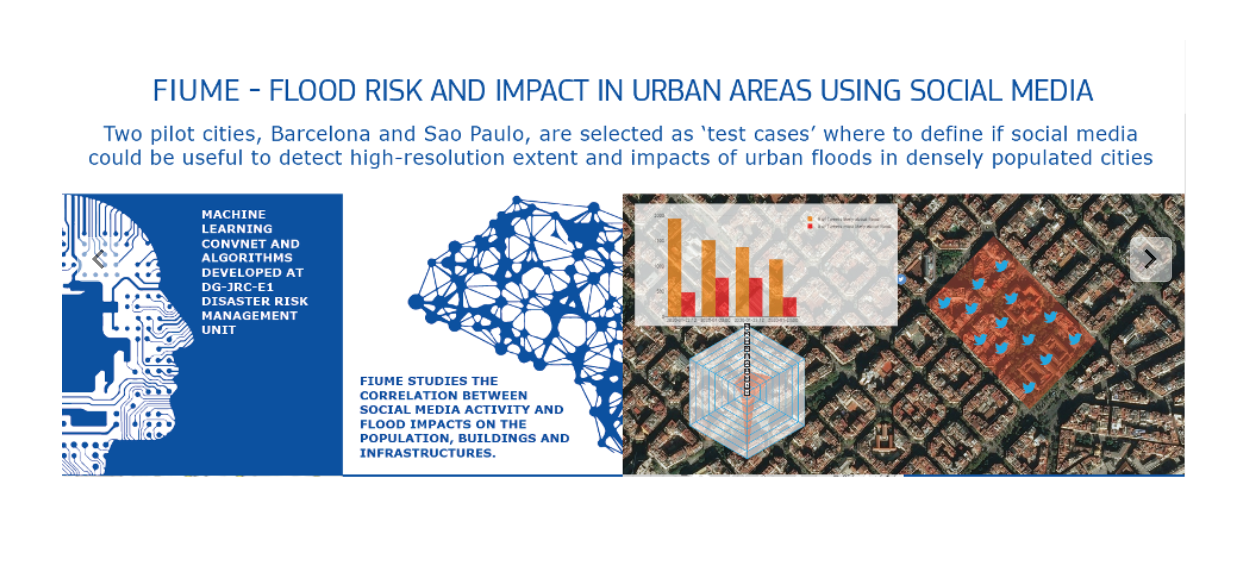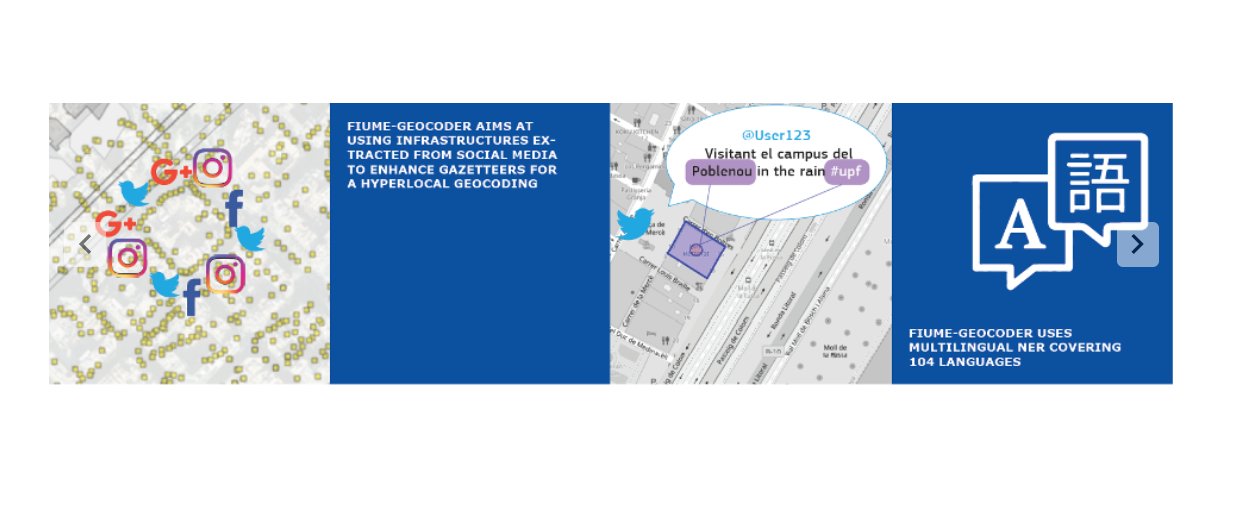Interview with Valerio Lorini: Detect urban floods impacts with the FIUME Project
In today’s interview we talked with Valerio Lorini from the Joint Research Centre of the European Commission about his project FIUME. Behind the Italian word for river hides the full project name “Flood risk and Impact in Urban areas using social Media”. The exploratory research activity aims at extracting valuable information about damages or disruptions to people, services and infrastructures during floods or storms in urban areas. To do so, they are building machine-learning models to classify tweets related to such events for the two pilot cities Barcelona and Sao Paulo.
Author: Ursina Roffler
Ursina Roffler: What are your motivations using Citizen Science for your project?
Valerio Lorini: We take three steps for building our machine-learning models. First, we collect data that was published in previous urban floods and anonymize them because respect of privacy is of the utmost importance. Therefore, we only use publicly available data. Second, we annotate the collected data according to the type of impact. For example, a mention of a road blockage is labeled as impact on infrastructures. This task is done with the support of a community of experts in the domain of disaster risk reduction. And third, based on the annotations we train our model using a so-called neural network.
What are your experiences with Citizen Science so far? What works well and what are the biggest challenges?
Valerio Lorini: To annotating the data we use the CS Project Builder platform provided by the Citizen Science Center Zurich. We asked practitioners in the field of emergency response to use the platform for reading the tweets and answering some questions that can help labelling the data. The biggest challenge, according to the annotators, has been some hiccups due to the set-up of the interface when many annotators were active at the same time* and to keep the community motivated. Overall, the system worked well, we annotated 12.000 messages, each time 6K for Barcelona and for Sao Paulo.
One challenge we often encounter in Citizen Science is to build and sustain a community around a project. How do you manage to do so?
Valerio Lorini: In our case, the community is already established. Our community are the members of VOST Europe – the federation of Virtual Operations Support Teams across Europe. It unites citizens from different countries offering their time volunteering for sharing correct information about emergencies on the internet. All with the objective to have a society that is more prepared, informed and resilient to natural disasters.
You are using our CS Project Builder. What are your experiences with it?
Valerio Lorini: It is a promising tool that makes it easy to build an annotation system in only a few steps. It would be great to have the possibility to customize it even more, for example adding counters.
What are the next steps in your project?
Valerio Lorini: Now that we have the annotated data we are training our machine-learning models and testing them on real time events. An iterative path will continue with trial and errors until we have a model with the desired accuracy.
Anything else you would like to add?
Valerio Lorini: Keep up the great work. While using the platform I became aware of other projects too and I even participated to some of them.
Great, we’re happy to hear that and are glad you used our CS Project Builder for your valuable project! Thank you very much for your time and we are looking forward to updates on your machine-learning models.

About Valerio Lorini: Valerio Lorini is a computer scientist. He currently works for the Joint Research Centre (DG-JRC) of the European Commission. His research focuses on Disaster Risk Management, specifically on how to use information extracted from citizen-generated data during a natural disaster, to help crisis responders.
*Note: The new version of the platform, coming up in a few weeks, will correct for such scalability issues and be ready to welcome hundreds of users at the same time!

